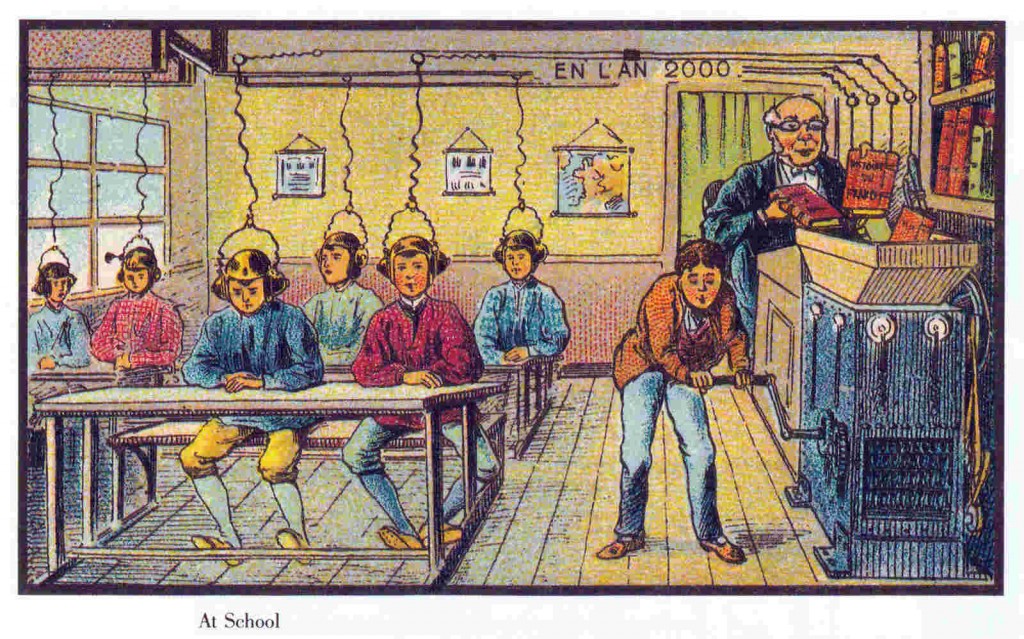I remember that Scottish Enterprise – Glasgow conducted some interesting research in which they asked Glasgow citizens how they felt about “education” and how they felt about “learning”? It shouldn’t surprise you to know that citizens have an overwhelmingly positive response to learning, but a lukewarm response to education as a word! This should fascinate and upset us in equal measure, as the two concepts are largely treated in the UK as though they were synonymous. The probable reason for this would seem to me that that the two concepts are overlapping, but far from identical.
Learning is something organic and diffuse, and for me, it is often characterised by excitement and high intrinsic motivation. My friend and I when in our early twenties used to talk with excitement as we walked about the contents of a modern-physics book which he had become excited about and loaned me, (Superforce – by Paul Davies in case anyone cares). We loved the idea of the search for a Grand Unified Theory of all forces in physics, and were genuinely inspired and excited about it. We were beginning to learn some of the basic quantum physics concepts and it made us feel that we were growing and progressing in some way. I would have to contrast this with my later experience of studying a course in quantum physics as part of my degree, and I have to rate this as one of the most disappointing experiences of my life. I looked forward to that course, and sat with fresh pad and pen, breath bated. What then ensued was 6 weeks of dull maths with a lecturer who seemed to make no attempt to discuss or bring to life any of this potentially wonderful learning. It was awful! Clearly I had the motivation and potential to love learning about quantum physics, however, my taste of education in it was a failure in any terms that matter. I can remember (now 48 years old) literally nothing of the formal lectures, and yet I still recall the outline concepts of the search for the Grand Unified Theory from self motivated conversations and reading.
I think frequently about my learning as an amateur photographer. I read websites spontaneously, and feel motivated to try new ideas and to reflect on the outcomes. I have a basic understanding of a framework of fixed categories and ideas about who is who in photography, what the main types of photography are, the main technical history and trends in cameras, and the art itself of the hobby. Much of this arises because of my love for photography. It is no accident that I invoked the word amateur in this context, it comes from the latin, “amare”, to love! Things you love to learn seem attractive and effortless. Many amateurs can outperform and outlearn professionals in the same discipline because of this well of motivation that they dip into. One test of this “amare” in learning is the regular discussion that the motivated learner seems so happy to enter into. When I think of most of my friends, they talk about things they are learning that get them interested and excited, including hobbies, literature, technology, and languages for example. People love to learn, just like the citizens of Glasgow said!
So what does education do about this. The truth might be just too terrible for us to confront; it may well be that schools damage this “amare” in many children and young learners. Schools, should be run by a political system that has a disposition towards creating lifelong learners who are excited about learning in their areas of passion and who have discovered a balance between these personal and professional learning passions. This should be underpinned by a professional class of educators who are critical about traditional systems and who constantly re-design practice to deliver the political vision and aspirations of society. Sadly, I don’t see enough evidence of this, with educators who are tired and overworked in a system-and-accountability quagmire that squeezes the creativity from the very people who should have this “amare” for supporting learning. These same educators are driven, indeed sometimes close to being whipped (in the parliamentary sense), into delivering conformity of teaching practice, and better attainment in the same-old exam systems largely designed to separate academic youngsters from non-academic and used as a crude proxy measure of the ability of an education system to transform and grow a great society.
Within this system, there are many superb educators, who understand that the problem is about the system itself. They understand that classes of children processed by age groupings will simply not serve society in the future, (probably nearer than we think), and that the system has to make some significant changes in the direction of individualised education as opposed the large degree of battery farming that we are delivering at present. The curriculum for an individual should come from the passions and learning drives of individual learners, and the school should support that, bringing excitement, and yes sometimes structure to bear on the balance of learning “amare” with the basic literacies needed to learn well. At present too many people spend too much time learning that they are not as clever as others resulting in demotivation and indeed a slide into apathy.
This will not serve us, but the educators who want to change this are being stifled by their lack of power in a system that promotes too much conformity.
